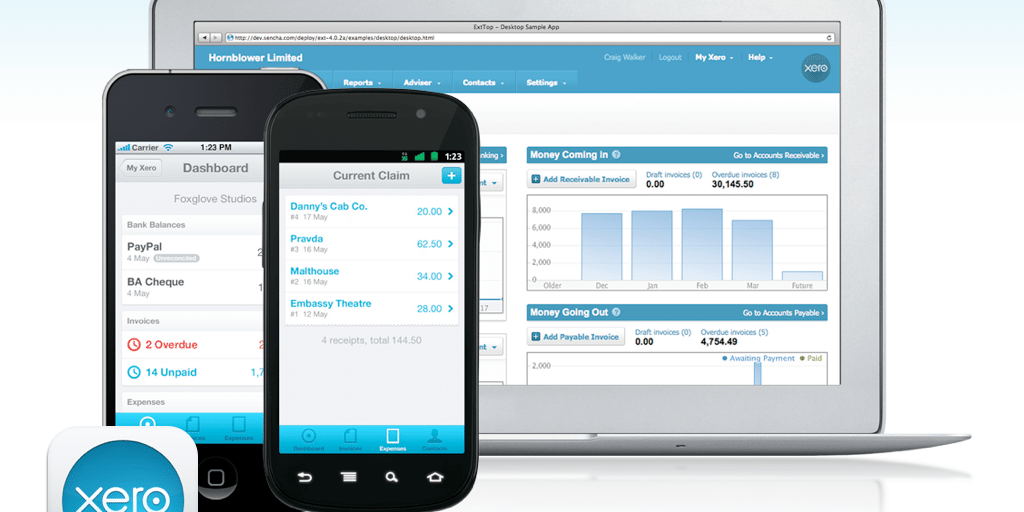Many believe that cheap web hosting equates to poor quality. However, numerous affordable and reliable options exist, allowing small businesses to maintain a strong online presence without excessive expenditure. This guide dissects the realities of cheap web hosting for small businesses, highlighting both advantages and limitations.
Toc
- 1. Assessing Your Web Hosting Needs
- 2. Types of Cheap Web Hosting Explained
- 3. Related articles 01:
- 4. Top Cheap Web Hosting Providers for Small Businesses in the USA
- 5. Avoiding the Pitfalls of Free Web Hosting
- 6. Related articles 02:
- 7. Current Trends in Web Hosting
- 8. Choosing the Right Cheap Web Hosting: Best Practices
- 9. Conclusion
Assessing Your Web Hosting Needs

Before you leap into the world of web hosting, it’s crucial to understand what you actually need. This involves identifying your website goals and estimating your expected traffic.
Identifying Your Website Goals
The first step is to clarify what you want your website to achieve. Are you creating a simple brochure site to showcase your services, or are you planning to launch a full-fledged e-commerce platform? If you’re leaning toward the former, shared hosting could be your best bet. However, if you’re ready to dive into the bustling world of online shopping, you’ll need something more robust that can handle transactions, manage inventory, and ensure a smooth shopping experience for your customers.
Understanding Traffic Expectations
Next, consider your anticipated traffic volume. Are you expecting a trickle of visitors or a flood? Shared hosting is great for lower traffic but can become sluggish as your audience grows. On the other hand, Virtual Private Server (VPS) or cloud hosting solutions offer scalability, making them ideal for businesses anticipating growth. You wouldn’t want your site to crash when you suddenly go viral, right?
The Importance of Scalability
Scalability is paramount. A website handling 100 visitors daily might need different resources than one expecting 10,000. For instance, a small bakery’s website might initially thrive on shared hosting, but rapid growth from social media marketing could necessitate a move to VPS or cloud hosting to avoid slowdowns or crashes. Understanding your potential growth trajectory can save you from costly downtimes and performance issues down the line.
Essential Features to Consider
When selecting a hosting plan, be sure to evaluate the essential features that will support your operations. Here are a few must-haves:
- Storage and Bandwidth: Ensure your plan offers sufficient storage for your website files and enough bandwidth to handle traffic without hiccups.
- Email Accounts: Professional communication is key, so look for providers that include email accounts.
- SSL Certificates: Secure your customer transactions with SSL certificates.
- Security Features: Protect your website from cyber threats with robust security measures.
Balancing cost with these features is essential for your long-term success.
Types of Cheap Web Hosting Explained

Now that you have a grasp on your needs, let’s explore the different types of cheap web hosting options available for small businesses.
Shared hosting is like renting a room in a bustling apartment complex. You share the same server resources with other websites, which keeps costs down. It’s perfect for startups and small sites, but be aware of the performance limitations. If your neighbor’s site experiences a surge in traffic, your website could suffer.
However, shared hosting comes with potential downsides. Resource contention, where multiple websites compete for the same server resources (CPU, RAM, bandwidth), can lead to performance degradation, especially during peak hours. A poorly optimized website on the same server can negatively impact your site’s speed and uptime. Namecheap offers competitive shared hosting plans, making it a go-to option for budget-conscious businesses looking for cheap web hosting for small business in USA.
1. https://kinemasterap.org/archive/553/
2. https://kinemasterap.org/archive/555/
3. https://kinemasterap.org/archive/551/
VPS Hosting
Virtual Private Server (VPS) hosting is a step up from shared hosting. You still share a physical server, but with dedicated resources, which means better performance and enhanced security. VPS hosting is ideal for small businesses that are experiencing growth and need more control over their hosting environment. It can handle medium to high traffic levels effectively, making it a scalable solution.
Cloud Hosting
Cloud hosting offers flexibility and scalability. By leveraging multiple interconnected servers, it adapts to fluctuating traffic demands. This is particularly beneficial for businesses with varying visitor numbers. Plus, with a pay-as-you-go pricing model, you’ll only pay for the resources you actually use. This makes cloud hosting one of the cheapest web hosting per year options for growing businesses.
Dedicated Hosting
Dedicated hosting is like having your own mansion—plenty of space and no neighbors to bother you. However, this luxury comes with a price tag that’s typically too high for most small businesses. Unless you’re anticipating extremely high traffic or have specific security needs, dedicated hosting might not be necessary for you.
Managed vs. Unmanaged Hosting
Managed hosting takes care of all the technical aspects of server management, allowing you to focus on your business. This is particularly beneficial for small business owners who may lack technical expertise. Unmanaged hosting, however, requires you to handle server maintenance and updates yourself. If you’re new to website management, managed hosting is usually the way to go.
Top Cheap Web Hosting Providers for Small Businesses in the USA

When it comes to finding the best cheap web hosting, several providers stand out from the crowd. Here are some of the top contenders:
Namecheap
Namecheap is a household name in the web hosting world, known for its affordable plans and user-friendly interface. Their shared hosting options start at a competitive price, making them a popular choice for small businesses. Namecheap also offers free website migrations and a free SSL certificate with their plans, enhancing security and ease of use. While their customer support might not be as extensive as some competitors, the affordability and straightforward features make it an attractive choice for anyone searching for cheap web hosting for small business in USA.
Bluehost
Bluehost is a top contender for small business web hosting, especially for those who use WordPress. With plans starting at just $2.95 per month, they provide excellent value for money. Bluehost includes a free domain for the first year, a free SSL certificate, and 24/7 customer support, making it an ideal choice for small businesses seeking a reliable and comprehensive hosting solution. However, keep in mind that renewal rates can increase significantly after the initial term, so be sure to read the fine print. This makes it one of the best web hosting for small business ecommerce options available.
Hostinger
If you’re hunting for deals, Hostinger offers some of the cheapest web hosting solutions around, starting at just $1.75 per month. Their plans come with ample storage, bandwidth, and a user-friendly website builder, making it an excellent option for small businesses just starting out. Hostinger also provides robust security features and a 30-day money-back guarantee, which adds to its appeal. However, some users report longer wait times during peak periods, so be prepared for that. This is a popular choice on Cheapest website hosting for small business Reddit threads.
SiteGround
SiteGround is renowned for its exceptional customer support and performance. While their prices may be slightly higher, starting at $2.99 per month, the service quality justifies the cost. SiteGround’s managed WordPress hosting is particularly strong, offering features like automatic updates and enhanced security. Their servers are optimized for speed, making it suitable for businesses that prioritize performance.
A2 Hosting
A2 Hosting is known for its speed and reliability. Their shared hosting plans begin at around $2.99 per month, providing good performance along with features like free site migration and an SSL certificate. A2 Hosting is particularly advantageous for websites that require fast loading times, making it a suitable option for e-commerce sites and high-traffic blogs. It’s often mentioned as the best web design and hosting for small business.
DreamHost
DreamHost offers a variety of hosting options, including shared, VPS, and managed WordPress hosting. Their entry-level shared hosting plan starts at $2.59 per month, making it an affordable choice for small businesses. DreamHost also provides a generous 97-day money-back guarantee, allowing businesses to test their services without risk. Their commitment to customer support and security makes them a strong contender in the market.
Comparing Customer Support Quality
Customer support varies significantly across providers. While Bluehost and SiteGround consistently receive high marks for their 24/7 support and responsiveness, Namecheap’s support has been criticized by some users for longer wait times and less comprehensive assistance. Hostinger and A2 Hosting fall somewhere in between, with generally positive but not universally excellent reviews. It’s vital to consider the level of support you might need as your business grows.
Avoiding the Pitfalls of Free Web Hosting

1. https://kinemasterap.org/archive/555/
2. https://kinemasterap.org/archive/553/
3. https://kinemasterap.org/archive/551/
While free website hosting for small businesses may seem appealing, it often comes with significant drawbacks. Many free hosting services impose limitations on storage, bandwidth, and features, leading to poor performance and reliability. Additionally, free hosting typically displays ads on your website, which can detract from your brand’s professionalism.
Security is another major concern; free hosting providers often lack robust security measures, making your site vulnerable to attacks. For a small business looking to establish credibility and trust, investing in a paid hosting service is advisable. Ultimately, the investment in a reliable hosting solution directly correlates to the website’s performance and security.
However, while generally inadvisable, some free hosting services, like those offered by website builders with freemium models, can be suitable for very basic websites with minimal traffic needs, serving as a temporary stepping stone before upgrading to a paid plan. That said, limitations on customization and branding remain, making them less than ideal for serious business ventures.
Current Trends in Web Hosting
A recent trend is the rise of serverless computing, where businesses pay only for the compute time used, eliminating the need to manage servers. This offers scalability and cost-effectiveness, particularly for small businesses with fluctuating traffic. However, serverless architectures might require more specialized technical knowledge. As small businesses become more tech-savvy, exploring serverless options can provide them with a competitive edge.
Choosing the Right Cheap Web Hosting: Best Practices
Prioritizing Security
When selecting a hosting provider, security should be a top priority. Look for features like SSL certificates, firewalls, and daily backups. A secure hosting environment protects your business from cyber threats and builds trust with your customers.
Evaluating Scalability Options
Ensure that the hosting provider you choose offers scalable solutions. As your business grows, you may need to upgrade your hosting plan without experiencing downtime or disruptions. Providers that offer seamless transitions to higher-tier plans are ideal.
Understanding Contract Terms
Before signing up for a hosting plan, thoroughly read the contract terms. Pay attention to renewal rates, cancellation policies, and any hidden fees. Understanding these terms can help you avoid unexpected charges in the future.
Reading Reviews and Comparisons
Before making a decision, it’s wise to read reviews from reputable sources and check platforms like Reddit for user experiences. Engaging in discussions on forums can provide insights into various hosting providers and help you gauge their reliability and customer support quality. This is where you can find the cheapest website hosting and builder options that suit your needs.
Comparing Features and Pricing
When evaluating hosting providers, compare their features, pricing, and renewal rates. Look for any hidden costs associated with add-ons or services that may not be included in the initial plan. Understanding long-term costs is crucial for budgeting purposes, as many providers significantly increase their prices after the first term.
Customer Support and Scalability
Reliable customer support can make a significant difference, especially for small business owners who may need assistance with technical issues. Ensure that your chosen provider offers multiple support channels, such as live chat, email, and phone support. Additionally, consider scalability options. As your business grows, you may need to upgrade your hosting plan. Choosing a provider that offers flexible upgrade paths can save you time and hassle in the future.
Conclusion
Selecting cheap web hosting for your small business is a crucial decision impacting your online success. By carefully considering your needs, comparing providers like Namecheap, Bluehost, Hostinger, SiteGround, A2 Hosting, and DreamHost, and prioritizing features like security, scalability, and customer support, you can find a cost-effective solution that supports your business growth. Remember to read reviews and compare plans thoroughly before committing. Investing in a reliable, affordable hosting solution is a smart move for any small business aiming to establish a strong online presence.








